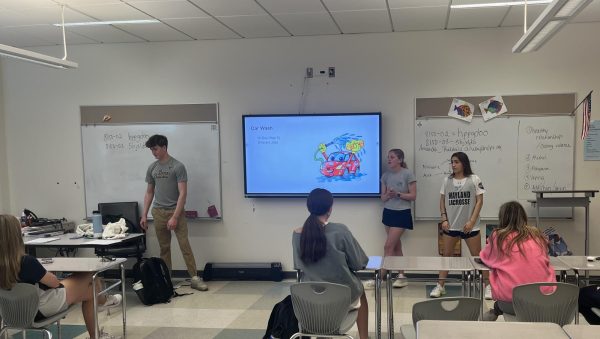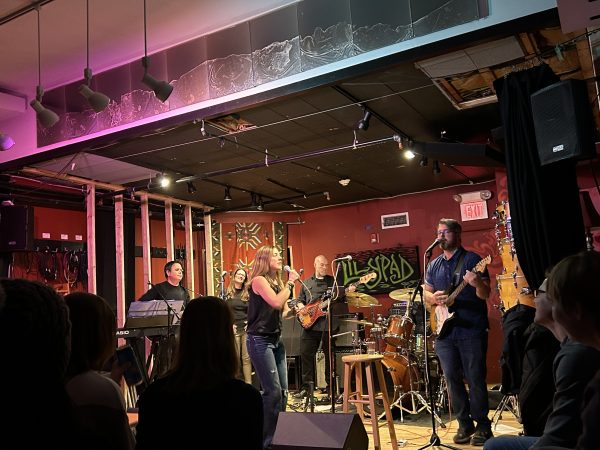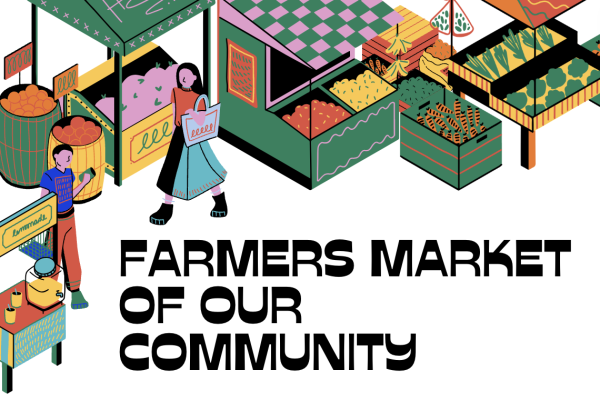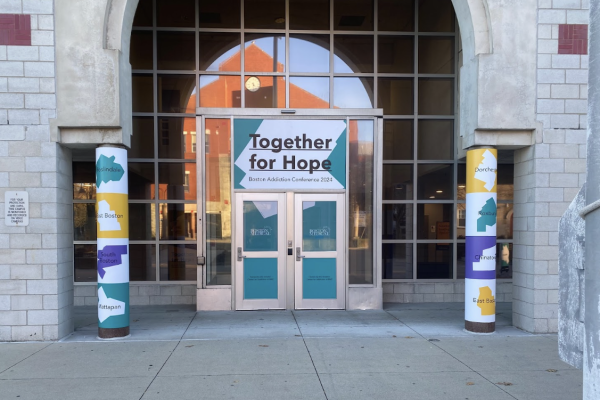Food insecurity rises across the country with the number of COVID-19 cases
Credit: Julia Raymond
Laurie Hojlo, director of the food pantry at Good Shepherd Parish, informs the community how to help the food crisis. During the holiday season, the pantry has seen an increase in donations. “There are a few good ways to help this cause, like volunteering to run a food drive,” Hojlo said.
January 7, 2021
Food insecurity across the country has increased dramatically in the past few months as COVID-19 cases rise. As more people struggle from hunger, the lack of food puts more people at a higher risk of chronic illnesses and COVID-19. In Boston, many community members have little access to nutritious food due to the pandemic that has taken a toll on the economy.
The pandemic has created limited access to food. Although schools still provide food and food banks, numbers are rising and hunger issues still exist among children. According to Feeding America, the estimated number of food-insecure children could jump from 11 million to an estimated 18 million.
“I think [food shortage] is one of the problems in the world right now that is going widely unaddressed right now,” junior Ben Chen said. “It’s especially hard for low-income families to put food on the table during these times where [COVID-19] is hurting the economy so badly, and where people are losing their jobs.”
Laurie Hojlo, the Parmenter food pantry director, helps recruit and orient volunteers, keeps track of the recipients, runs the pantry on the day of and keeps the pantry sorted and organized. Hojlo has been working at the pantry for two years and has recently noticed the increased need for food among many families.
“The families with kids, some of whom depend on the free lunches at school, needed extra food [recently] with their kids home more,” Hojlo said. “The schools were great in providing free lunches to be picked up, but not all the kids could get there without a school bus. We sent them lots of lunch foods like mac and cheese, peanut butter and jelly, fruit, snacks and juice boxes.”
The pantry has recently been more accessible and more people have been volunteering, especially during the holiday season. The pantry has provided food for people of all ages and has been delivering food to people who had to halt their grocery shopping due to COVID-19 concerns.
“During the first surge of the pandemic, we opened the pantry every two weeks instead of once a month to help out,” Hojlo said. “The elders were nervous about going to the grocery store, so we wanted to bring them food.”
Hojlo appreciates her volunteers and anyone who can help the cause in other ways. Whether it’s delivering food or raising money, she says the act can go a long way.
“Ways to help the cause include: volunteering to run a food drive, volunteering to pack and deliver groceries on food pantry day, picking a name and purchasing a [holiday] gift for a recipient or sorting and shelving the donated food at the pantry,” Hojlo said.
During the holiday season, it’s common to see students volunteering at the pantry to give back to the community. Some WHS students also donate food and volunteer at a local pantry to help the best they can during these times.
“My friend Taylor Hsu helped organize a thanksgiving dinner delivery program for people living in community housing this past thanksgiving,” Chen said. “It was a great thing for the community and it just shows how food insecurity can affect communities anywhere and everywhere, even Wayland.”
An anonymous WHS student also volunteered by donating food to a collection bin at a local grocery store and donating money to the Greater Boston Food Bank.
“At a grocery store where my family usually shops, there is a crate where food donations are collected as you walk out,” anonymous WHS student said. “We usually get several items to donate each time. Also, my parents asked for no gifts this holiday season and to instead donate to a charity. Their favorite and most dear charity is the Greater Boston Food Bank, so my brother and I donated there. I decided to continue this trend by making three more donations in the names of my friends as their Christmas presents this year.”
The food pantry is welcoming any donations, whether it’s money or food. Hojlo gives a list of foods to donate, which are usually found in the pantry section of the kitchen.
“We can always use boxes of cereal and oatmeal, canned veggies, soup, fruit, kids snacks and spaghetti sauce,” Hojlo said. “Each month, I purchase two fresh meat, two fresh veggies, two fresh fruits, juice and bread for everyone. Donated money helps too.”
With the food pantry located in Wayland, it makes it easy to donate food. Dropping off donations can be done at Hojlo’s house or a few different churches.
“There are blue bins on the church steps at St. Ann’s Church and St. Zepherin’s church and one at the end of my driveway at 41 Moore Rd, where you can drop off donations,” Hojlo said. “There’s also one at Stop and Shop [and] Prime Fitness and Nutrition, next to China Rose.”
Food insecurity issues will get more complicated as COVID-19 cases increase in the winter months. Donating can be an excellent way to solve these issues in our community. Visit the Good Shepherd Parish’s website to donate.
“I’ve been doing this for 22 years. It has flown by!” Hojlo said. “I have many wonderful volunteers who help me—it is way too big of a job to do myself.”



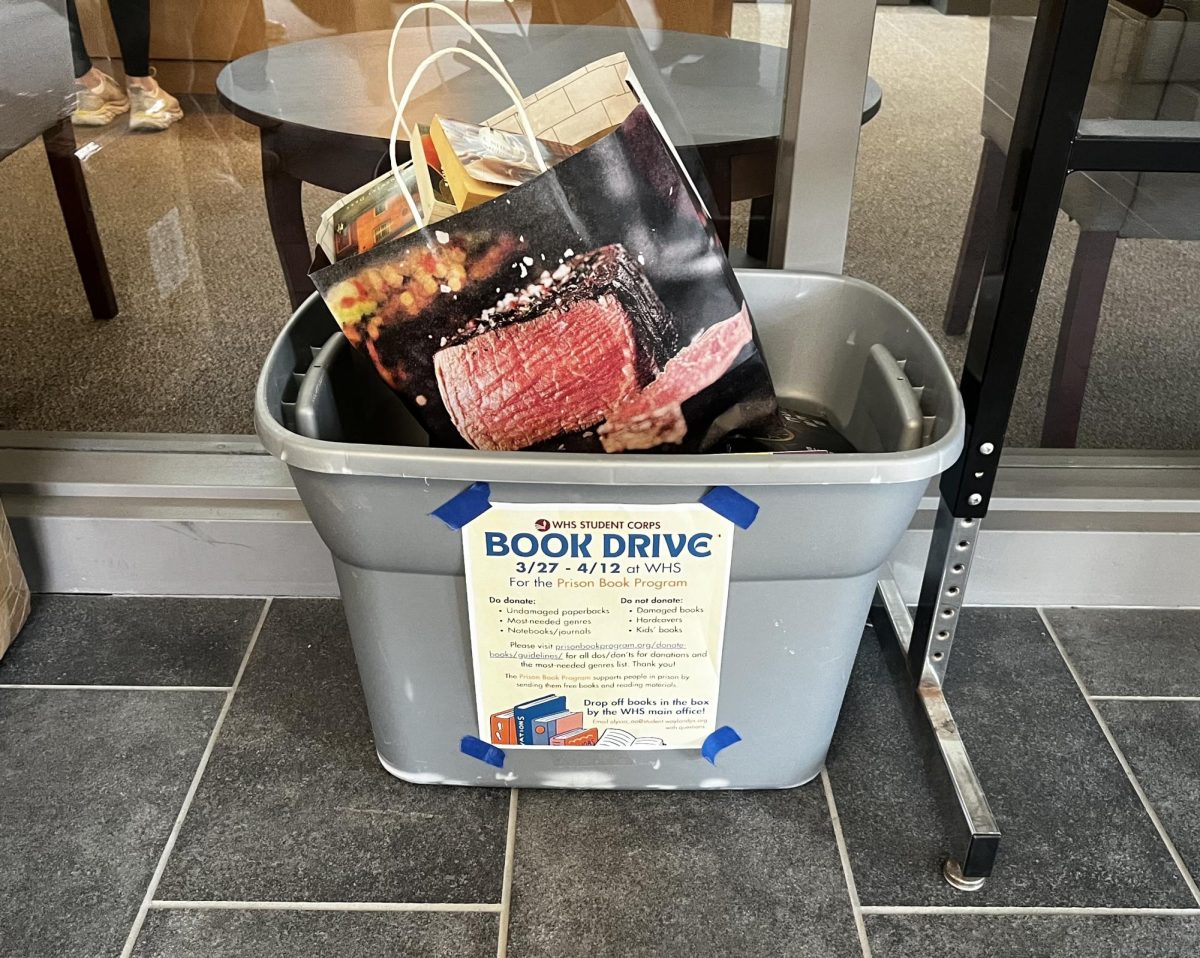






![WSPN staff reporter Marisa Mendoza sits down with Dr. Peggy McIntosh to discuss her work regarding white privilege and how she hopes her work will be influential for years to come.
The purpose of [my published] papers was to say that the public roles we are asked to play are filled with fraudulence, McIntosh said. People in high places, even the president, are fraudulent. We must not let other people make us feel like frauds. Let us continue to spot fraudulence in the public roles we are asked to play.](https://waylandstudentpress.com/wp-content/uploads/2024/04/IMG_7403-scaled-e1714358061368.jpg)
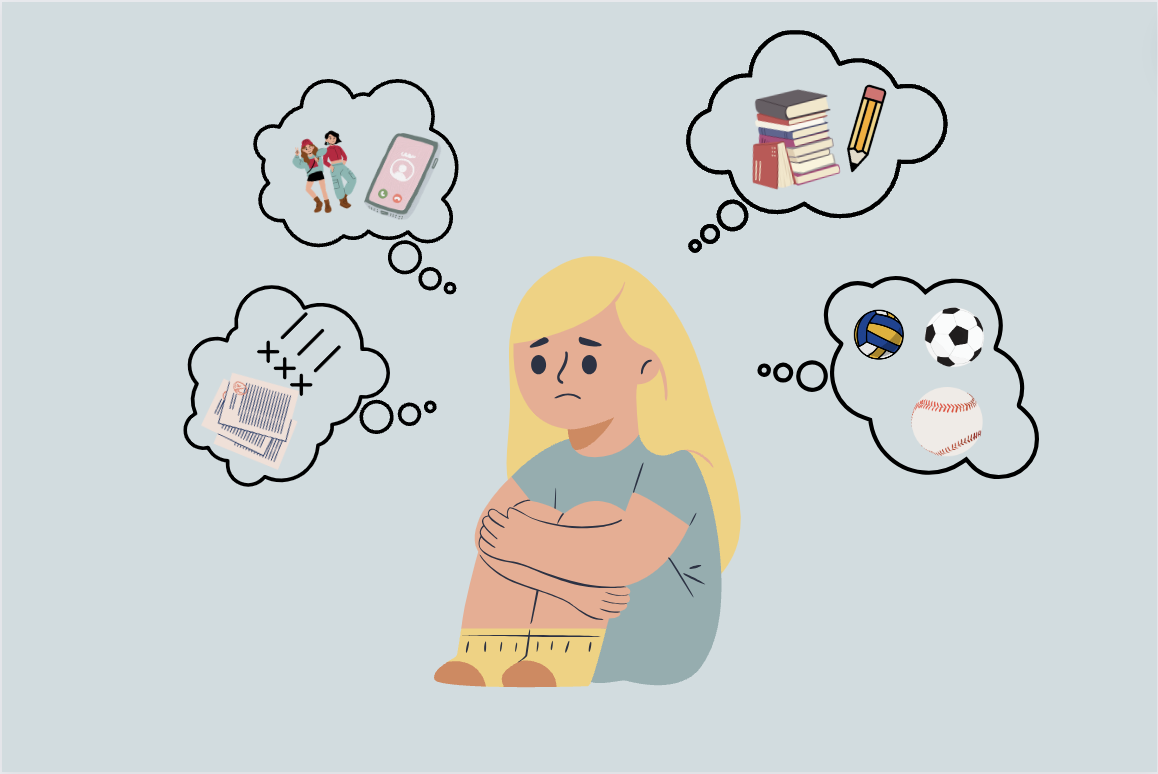
![WSPN’s Annika Martins and Maddie Zajac explore the athletic life of senior Annabelle Zhang through her badminton career. “This [photo] is me and my former partner after we won the 2022 junior nationals mixed doubles category,” Zhang said.](https://waylandstudentpress.com/wp-content/uploads/2024/04/IMG_6629-1200x900.jpg)
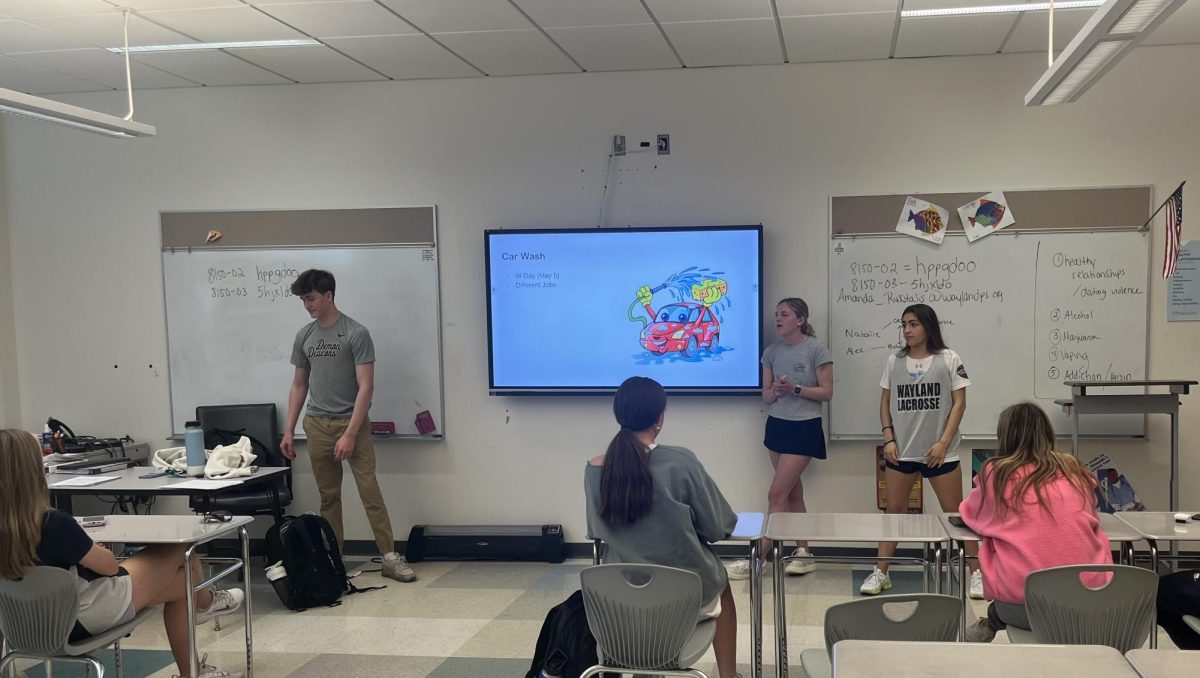
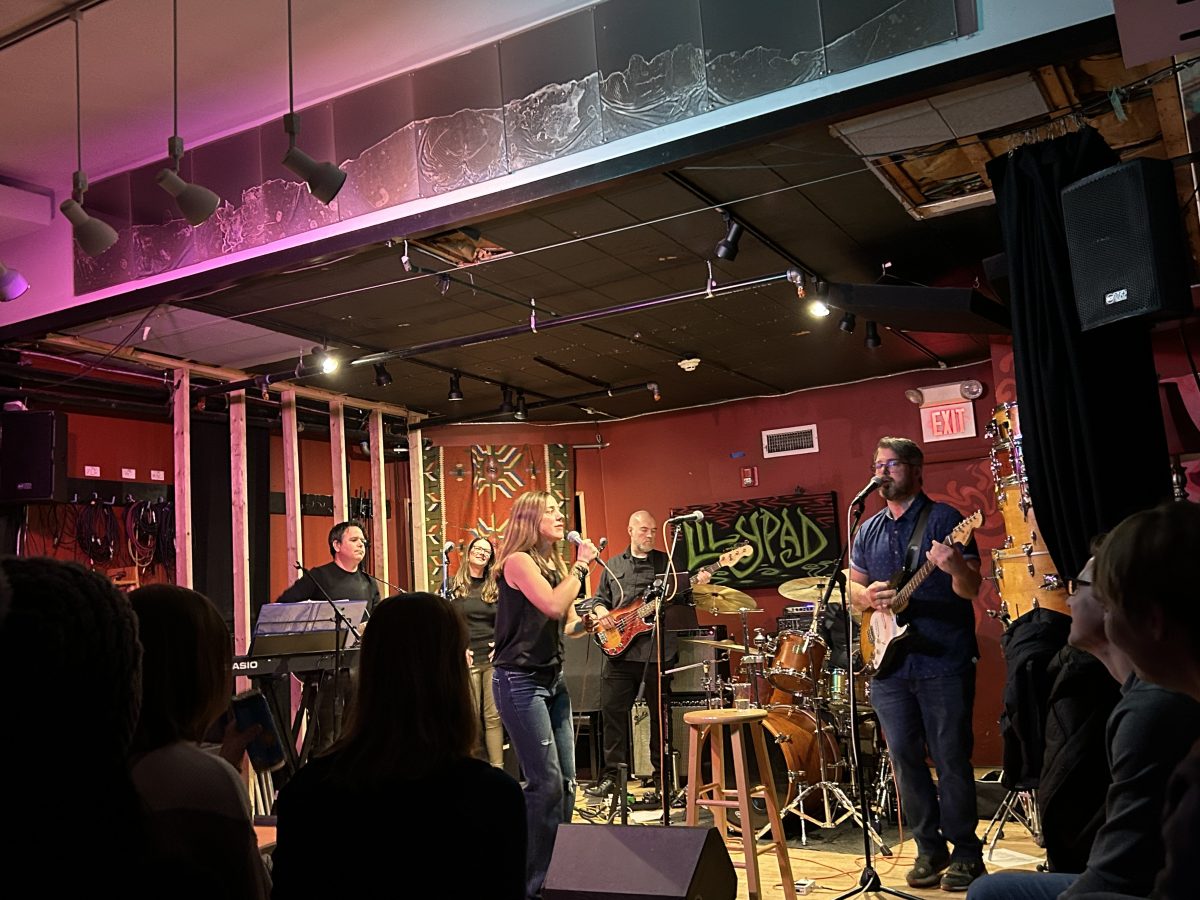






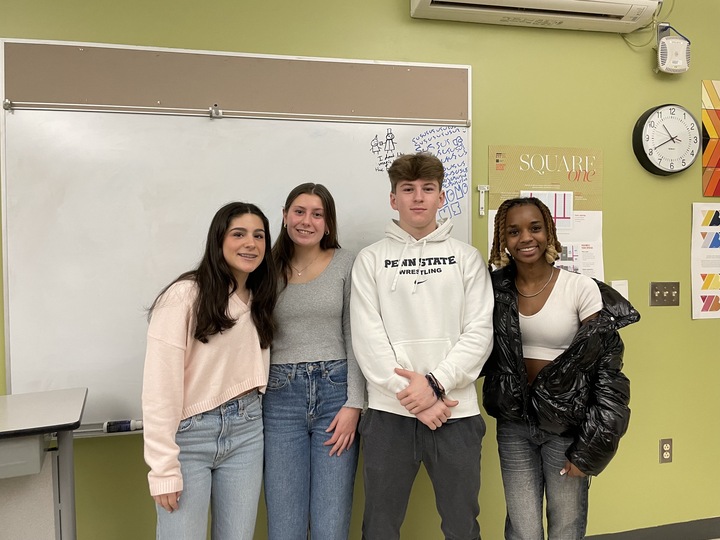


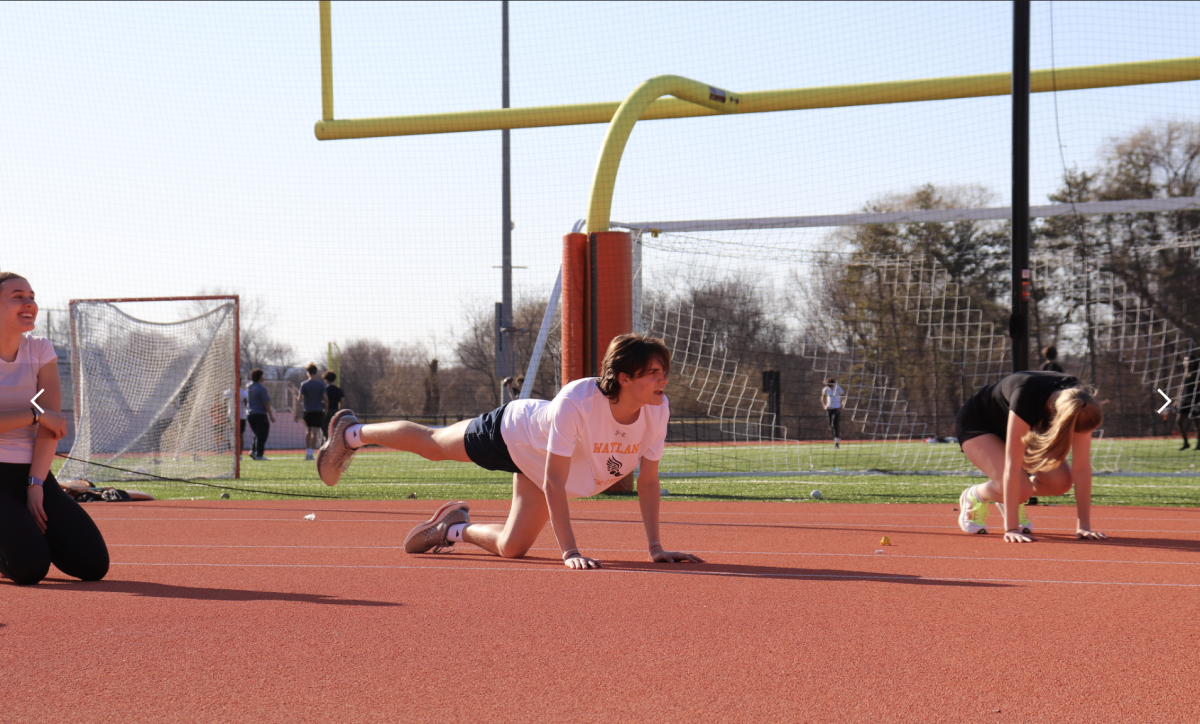

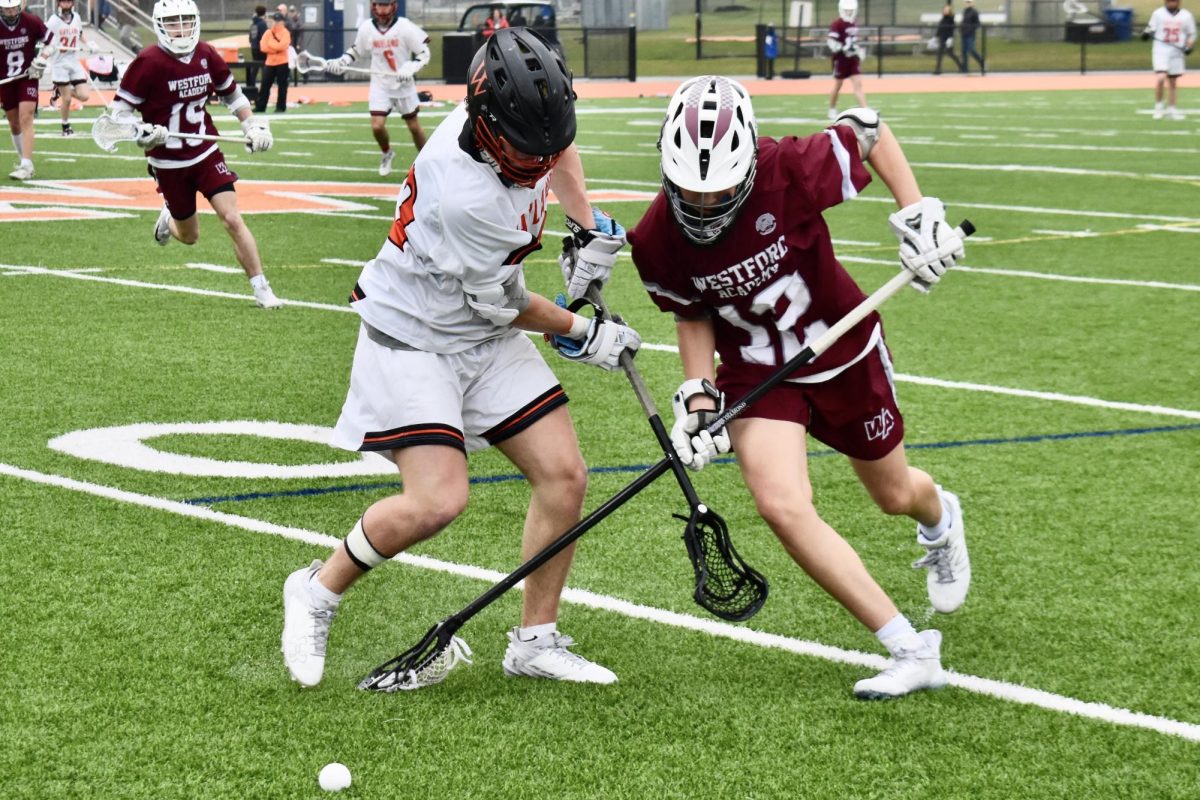

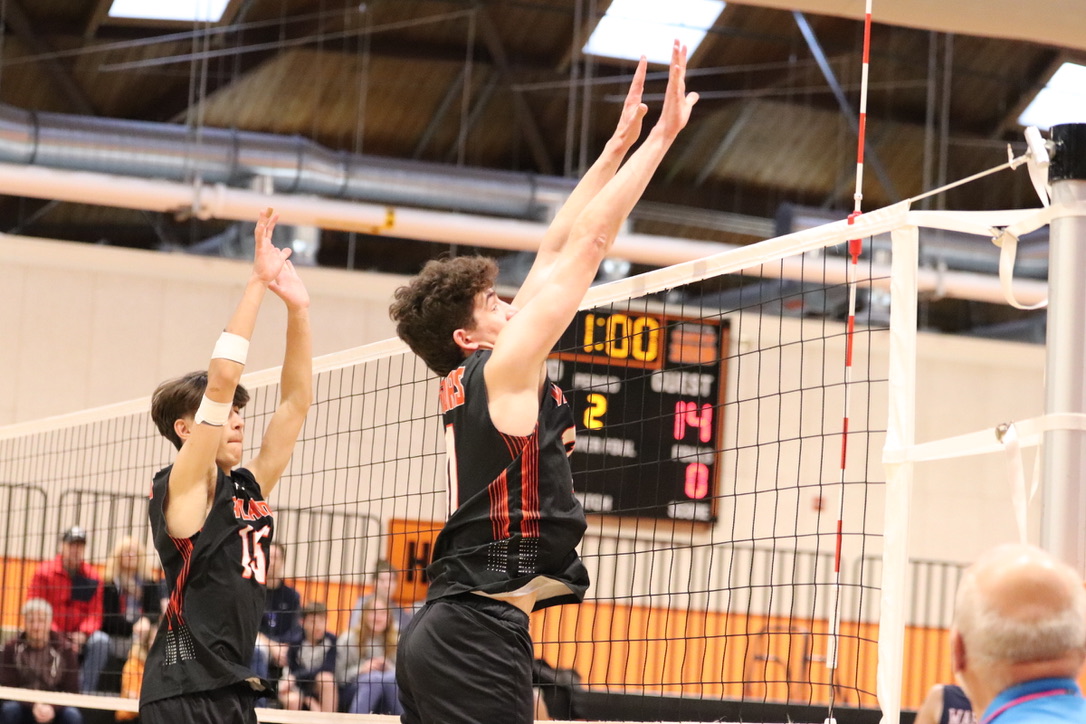
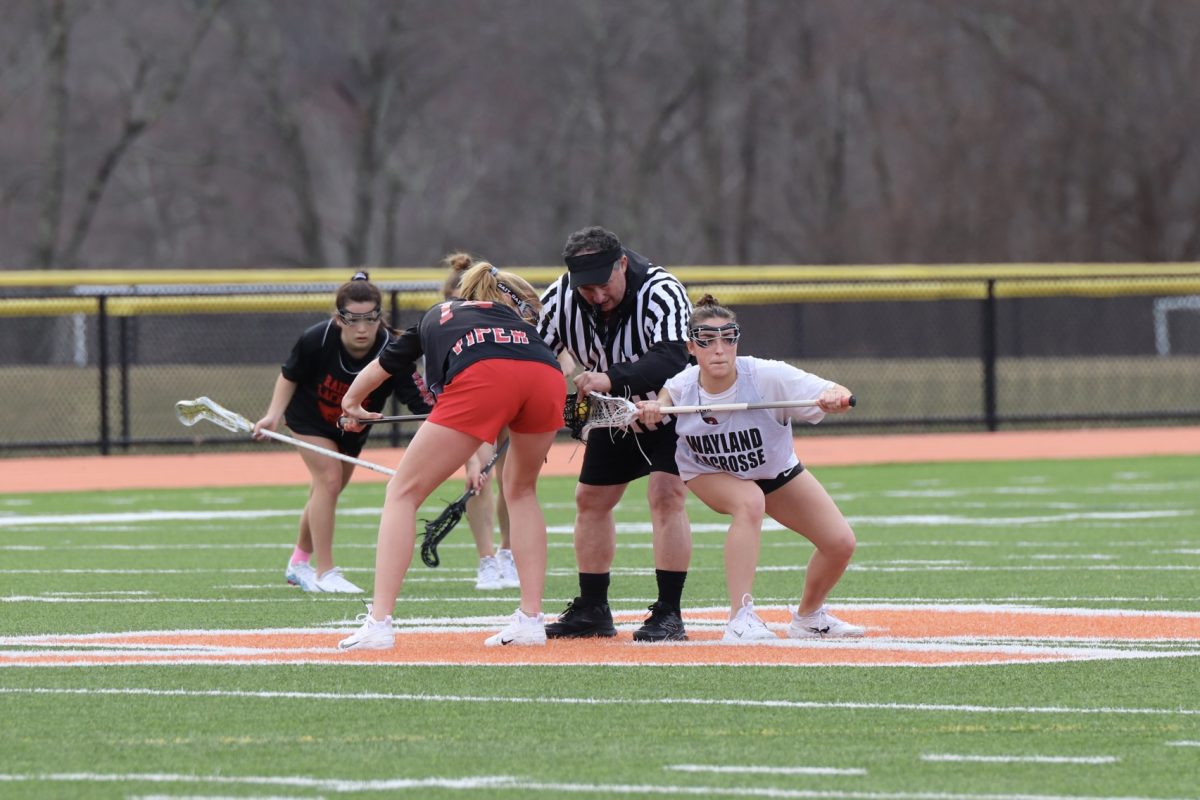
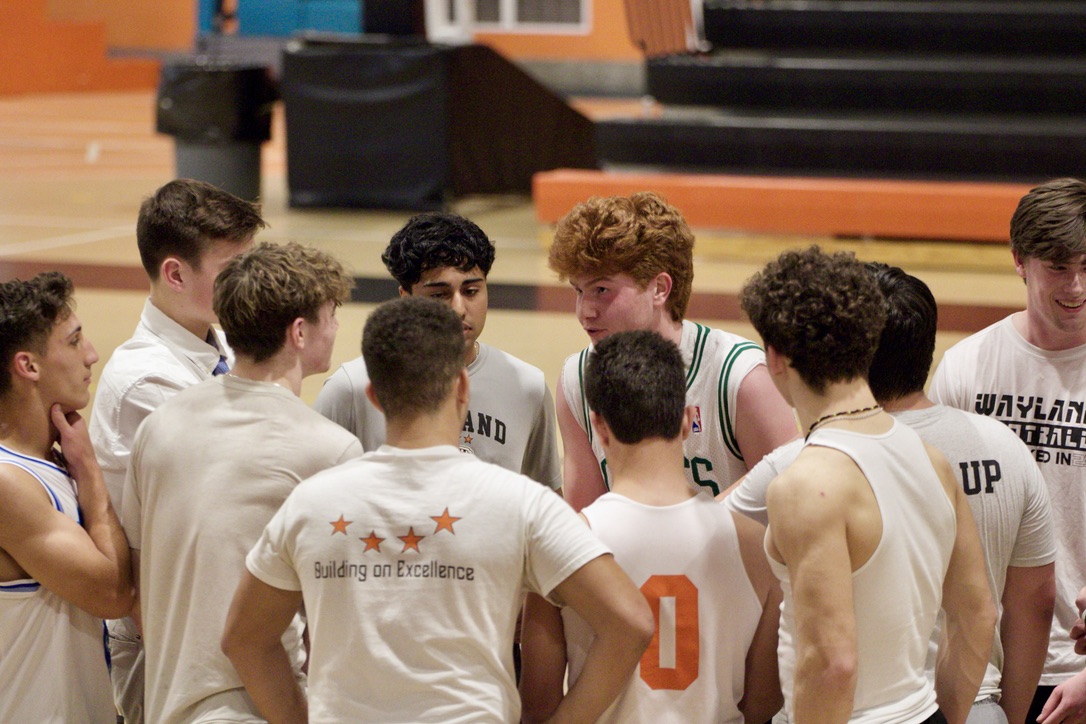


































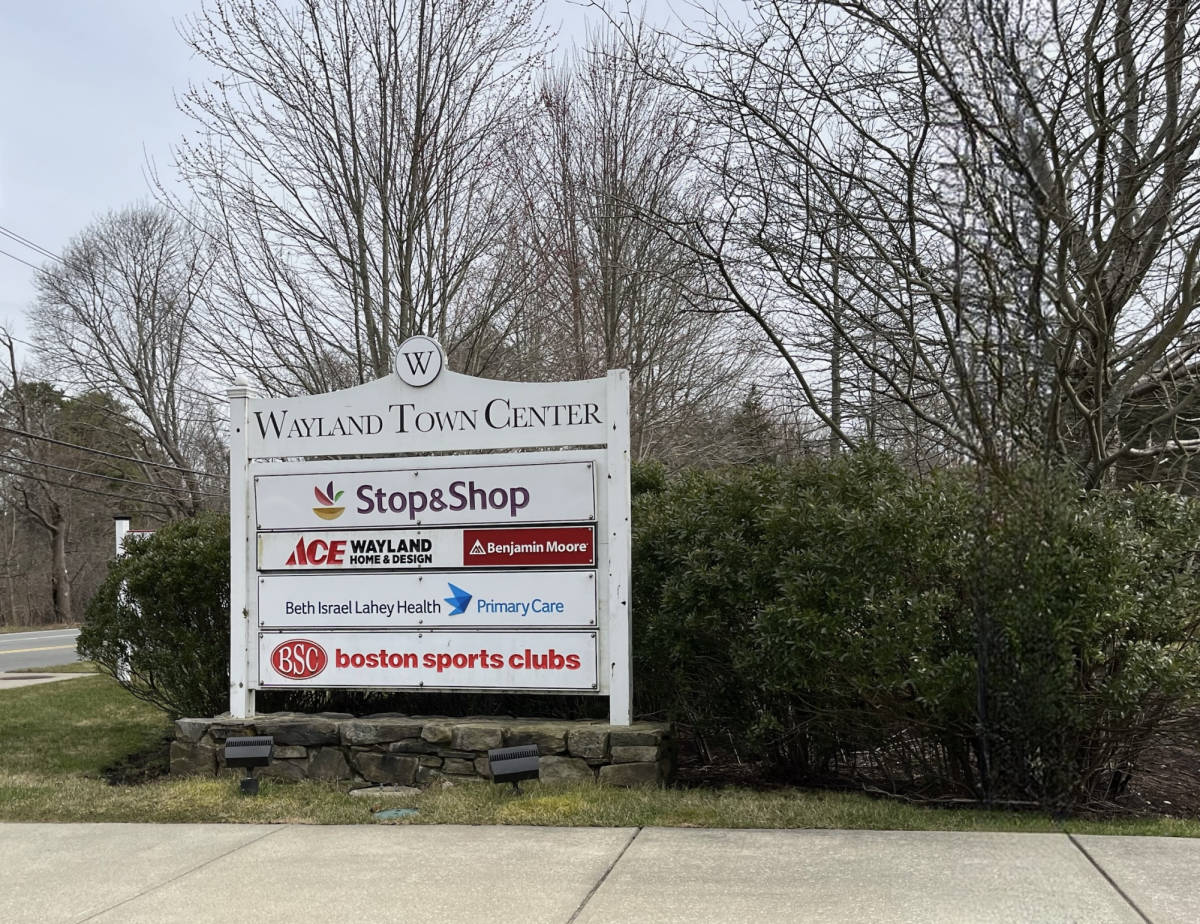








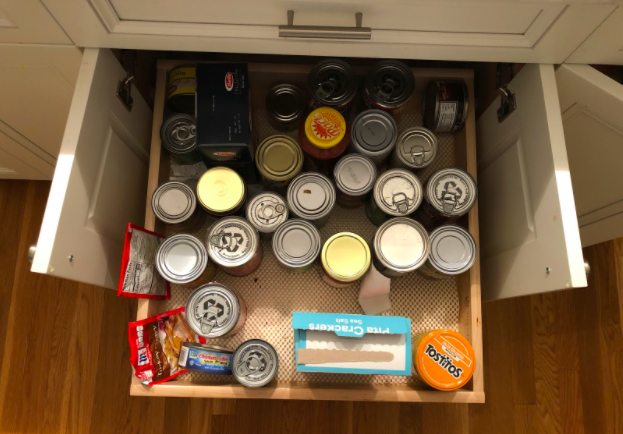
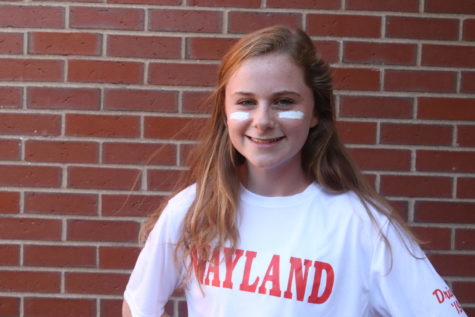
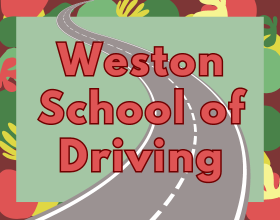


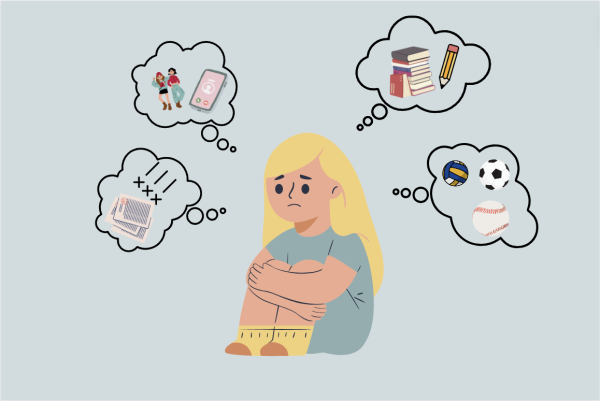
![WSPN’s Annika Martins and Maddie Zajac explore the athletic life of senior Annabelle Zhang through her badminton career. “This [photo] is me and my former partner after we won the 2022 junior nationals mixed doubles category,” Zhang said.](https://waylandstudentpress.com/wp-content/uploads/2024/04/IMG_6629-600x450.jpg)
